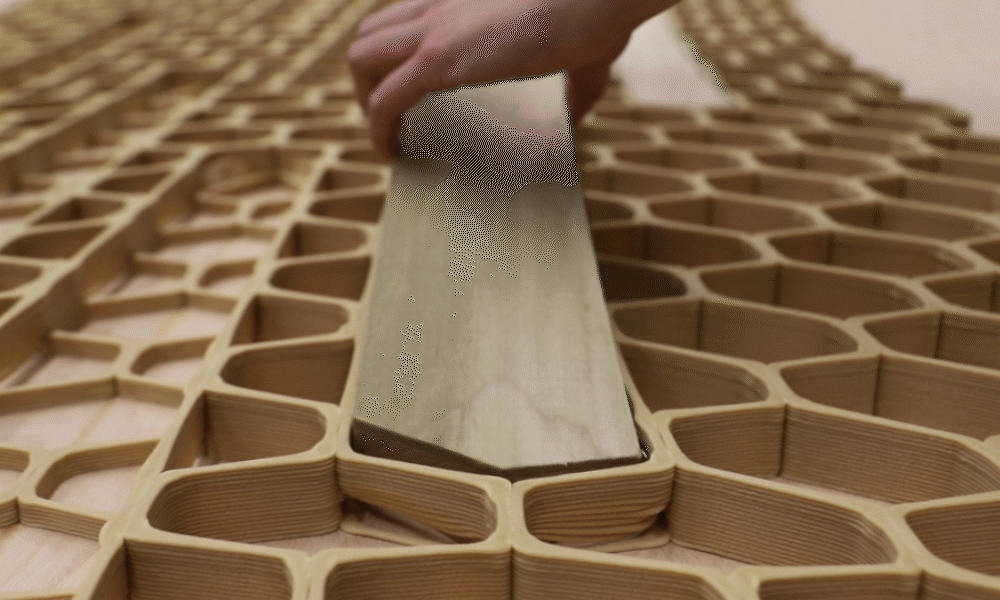Hybrid Additive Manufacturing of Self-Shaping Building Components
Year: 2020
Team: Eda Özdemir, Karen Antorveza, Laura Kiesewetter
The digital era brings us the possibility to design complex geometries but the prioritization of form has relegated material properties and environmental impact. The result is heavy machining, excessive manual labor and intricate scaffolding on the construction site. Therefore, this thesis proposes a design based on intrinsic material properties and material programming to create self-constructing architectural building components. By combining hygroscopic properties of self-shaping wood actuators with the tunability of 3D printing, the functionality of each element can be extended. The resulting components can be fabricated and assembled flat and then dry to self-shape on site into their pre-programmed geometry, which then is locked once the final state is reached. The focus of this research therefore was the development of a custom design to fabrication workflow to achieve this goal. Based on a set of parameters extracted from physical fundamental tests, rules for the pattern design and actuator configuration were established. A finite element behavior simulation tailored to self-shaping hybrids was used to evaluate the success in approximating the intended geometry. From that a digital fabrication workflow was devised and the framework was tested through the production of physical prototypes at small and large scale. The presented research and prototypes show how self-shaping hybrids could be used as an alternative in the fabrication and construction of double curved components, reducing wasteful and laborious processes.
For further information on the project please contact me!




